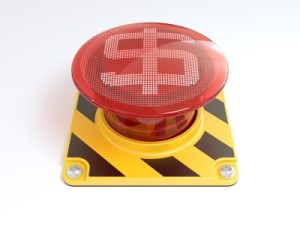 Today’s top story: When to ditch your state’s health insurance exchange. Also in the news: Tailgating blunders your insurance will pay for, how to handle unexpected financial disasters, and how much next year’s Social Security cost of living increase will be.
Today’s top story: When to ditch your state’s health insurance exchange. Also in the news: Tailgating blunders your insurance will pay for, how to handle unexpected financial disasters, and how much next year’s Social Security cost of living increase will be.
When to Ditch Your State’s Health Insurance Exchange
When to look off of the exchanges.
5 Football Tailgating Blunders Insurance Will Pay For
Accidentally grill your car? You’re covered!
No Savings, No Backup Plan, No Fairy Godmother: How to Handle a Financial Disaster
This is why you need an emergency fund.
Next year’s Social Security raise? Less than $4 a month
Lowering your expectations.
 Today’s top story: How $250 can keep families off welfare. Also in the news:A new tool to manage your student loans, what Prince can teach you about personal finance, and how to declutter after tax season.
Today’s top story: How $250 can keep families off welfare. Also in the news:A new tool to manage your student loans, what Prince can teach you about personal finance, and how to declutter after tax season. Today’s top story: The biggest tax mistake Millennials make. Also in the news: The 10 best Tax Day sales and freebies, the pros and cons of paying off debt early, and how to decide how big your emergency fund should be.
Today’s top story: The biggest tax mistake Millennials make. Also in the news: The 10 best Tax Day sales and freebies, the pros and cons of paying off debt early, and how to decide how big your emergency fund should be.  Today’s top story: What retirees need to know about the new Social Security deadline. Also in the news: States with no income tax, tax breaks for getting older, and why you need an “Armageddon Fund.”
Today’s top story: What retirees need to know about the new Social Security deadline. Also in the news: States with no income tax, tax breaks for getting older, and why you need an “Armageddon Fund.”  Today’s top story: How to build an emergency fund. Also in the news: Social Security mistakes to avoid, the best way to save for a down payment on a home, and what happens when your 401(k) gets too big?
Today’s top story: How to build an emergency fund. Also in the news: Social Security mistakes to avoid, the best way to save for a down payment on a home, and what happens when your 401(k) gets too big?  Today’s top story: The most important number in your financial life. Also in the news: How to get the most from a balance transfer credit card, how to build up your emergency fund, and how to audit your financial products.
Today’s top story: The most important number in your financial life. Also in the news: How to get the most from a balance transfer credit card, how to build up your emergency fund, and how to audit your financial products.